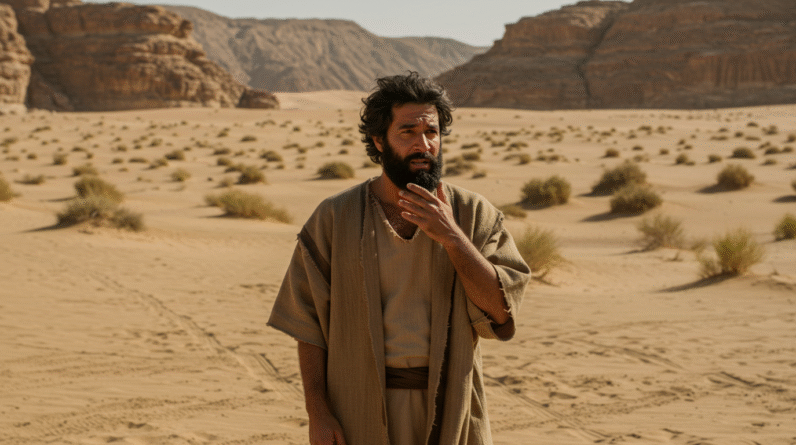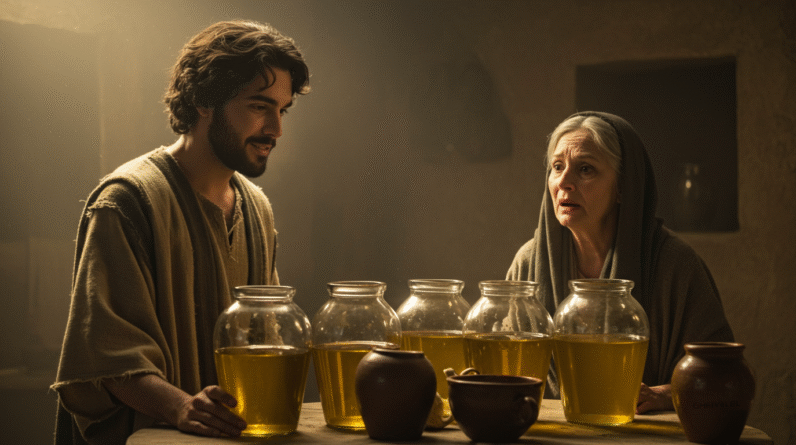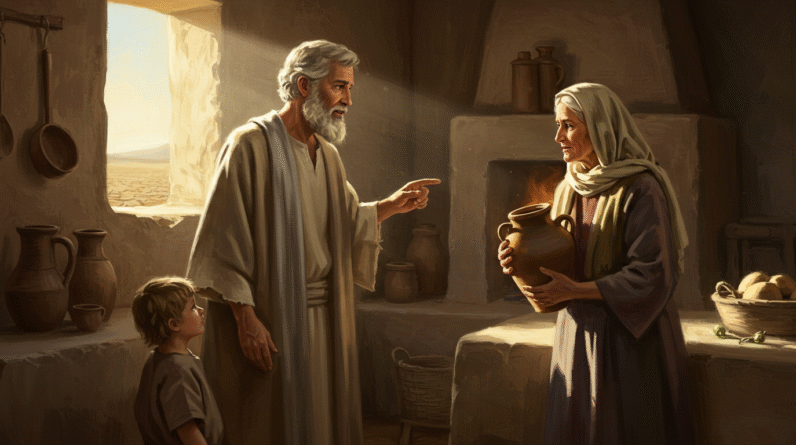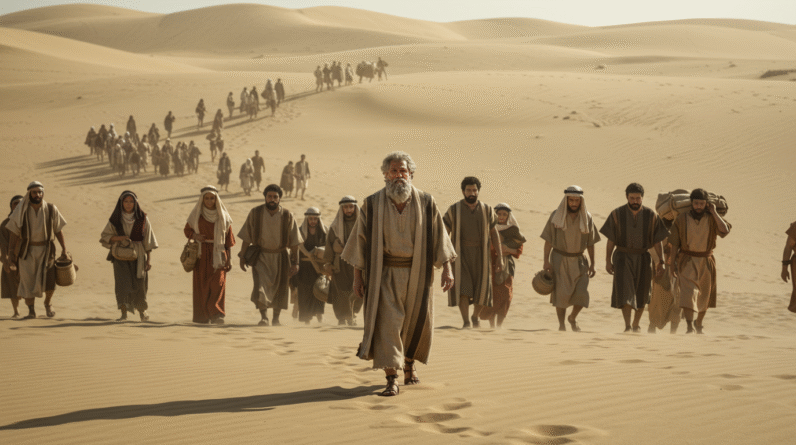Explore the transformative journey of Moses, the prophet who led the Israelites to freedom through faith and divine guidance. Discover his profound legacy today.
Moses: The Prophet Who Led a Nation to Freedom

Introduction
When delving into the pages of the Bible, one name emerges with profound authority and impact—Moses. Known as one of the most pivotal figures in biblical history, Moses led the Israelites out of Egypt and received the Ten Commandments. His legacy resonates through stories of faith, leadership, and divine intervention. A pivotal moment in his life is captured in Exodus 3:10, where God commands, “So now, go. I am sending you to Pharaoh to bring my people the Israelites out of Egypt.” This introduction paints just a hint of the monumental task Moses embarked upon—a journey that altered the course of history and laid down foundational truths for millions of believers today.
Historical Background
Moses’s life is set against the backdrop of ancient Egypt, around the 13th or 15th century BC. During this era, the Egyptian Pharaohs ruled with formidable power, and the Israelites were held as slaves under their oppressive reign. It was into this tumultuous environment that Moses was born—an environment rife with spiritual unease and cries for liberation from enslaved people. This time was marked by Pharaoh’s control and the consequent suffering of the Israelites. It was also intertwined with figures such as Aaron, Moses’s brother and spokesperson, and various Egyptian leaders. The intersection of these lives and cultures laid the stage for significant divine interventions.
God’s Call and Mission
The calling of Moses is one of the most dramatic and recognizable episodes in biblical literature. His encounter with God at the burning bush is a moment of both awe and hesitancy. In Exodus 3:1-12, God extraordinarily speaks to Moses, tasking him with delivering the Israelites from bondage. Moses expresses reluctance, feeling inadequate for such a daunting mission. Yet, God’s response is clear and reassuring: “I will be with you,” a promise that defines Moses’s incredible journey. This divine commitment propels Moses from a place of doubt to becoming a leader capable of confronting Pharaoh and leading his people toward freedom.
Key Events and Prophecies
Moses’s life is a tapestry of significant events and divine revelations that underscore his role as a prophet and leader. Among these, the parting of the Red Sea stands as one of history’s most dramatic demonstrations of divine power (Exodus 14:21-22). This miracle not only showcases God’s might but establishes Moses as a pivotal figure in the liberation narrative of the Israelites. Additionally, Moses’s reception of the Ten Commandments on Mount Sinai (Exodus 20) constitutes a cornerstone of ethical and religious conduct for many faiths. Moreover, Moses’s prophecy concerning a future prophet like himself (Deuteronomy 18:15) is often viewed by Christians as a foreshadowing of Jesus Christ’s coming, highlighting his role as a bridge between the Old and New Testaments.
Challenges and Opposition
Despite Moses’s divine mission, his journey was fraught with challenges and opposition. He faced the resistance of the Pharaoh in Egypt, who consistently hardened his heart against God’s demands (Exodus 5). Moreover, the journey through the wilderness was marked by the Israelites’ frequent complaints and lack of faith (Numbers 14:1-4). Even Moses’s struggles, such as his actions at Meribah where he struck the rock in disobedience (Numbers 20:10-12), had profound consequences, ultimately preventing him from entering the Promised Land. These challenges illustrate the trials of leadership and the human capacity for doubt, even among those chosen by God.
Legacy and Impact
Moses’s influence extends far beyond his lifetime, leaving an indelible mark on religious history. His ministry resulted in the deliverance of the Israelites and the establishment of laws that have shaped societal norms across generations. Moses is frequently referenced in both the Old and New Testaments, with Jesus remarking on his significance in John 5:46: “If you believed Moses, you would believe me, for he wrote about me.” Such references affirm Moses’s vital role in the theological dialogue between Judaism and Christianity. His life and teachings continue to inspire faith, resilience, and obedience to divine will.
Lessons from Moses
The narrative of Moses provides rich spiritual insights that are as relevant today as they were millennia ago. His life teaches us about faith and obedience, demonstrating that God can use anyone for His purposes, regardless of perceived personal inadequacies. Moses’s story reiterates God’s guidance, illustrated by His continual presence with Israel through a pillar of fire and cloud (Exodus 13:21-22). Moreover, Moses’s humility in leadership stands as a powerful lesson, epitomized in Numbers 12:3, where he is described as exceedingly humble. These lessons call believers to emulate these virtues in their daily lives, trusting in God’s plan and exercising leadership with humility.

Conclusion
Moses’s journey from a hesitant leader to a revered prophet underscores the transformative power of faith and obedience. His life, interwoven with divine mandates and human vulnerability, offers a profound reminder that God can work through anyone, no matter their perceived limitations. As you reflect on Moses’s legacy, consider how these timeless lessons challenge us to trust in the divine provision and pursue our own calling with courage. Are you prepared to embark on the path God has set before you, even when the way seems impossible?
Acknowledgment: All Bible verses referenced in this article were accessed via Bible Gateway (or Bible Hub)







